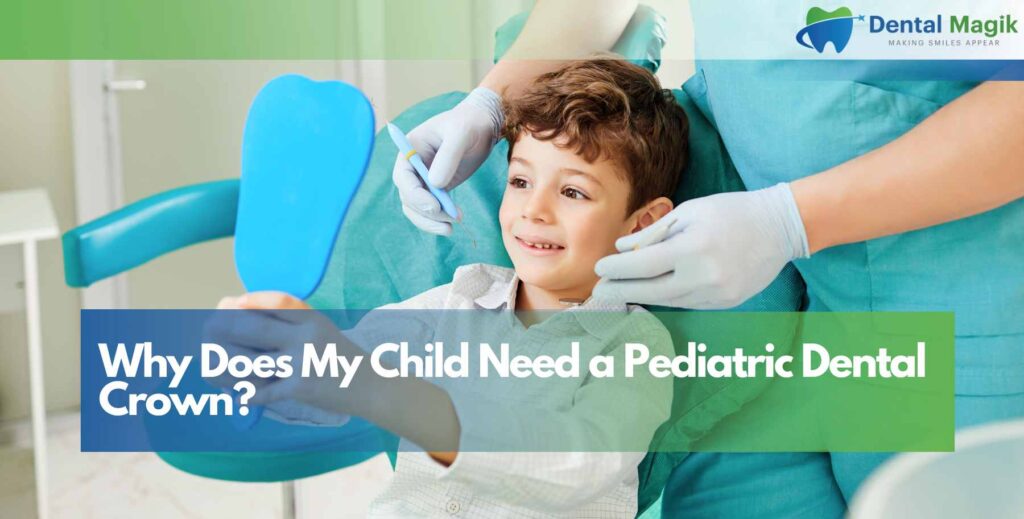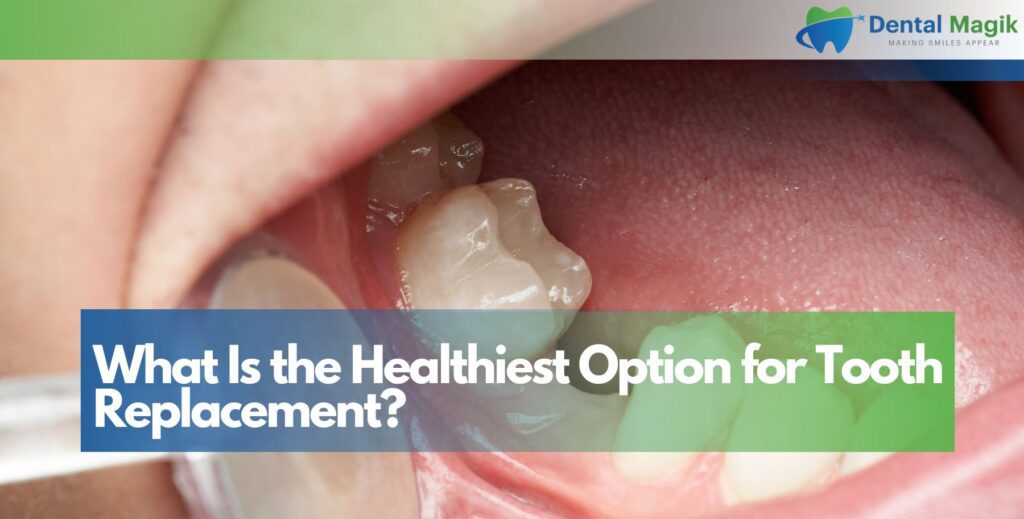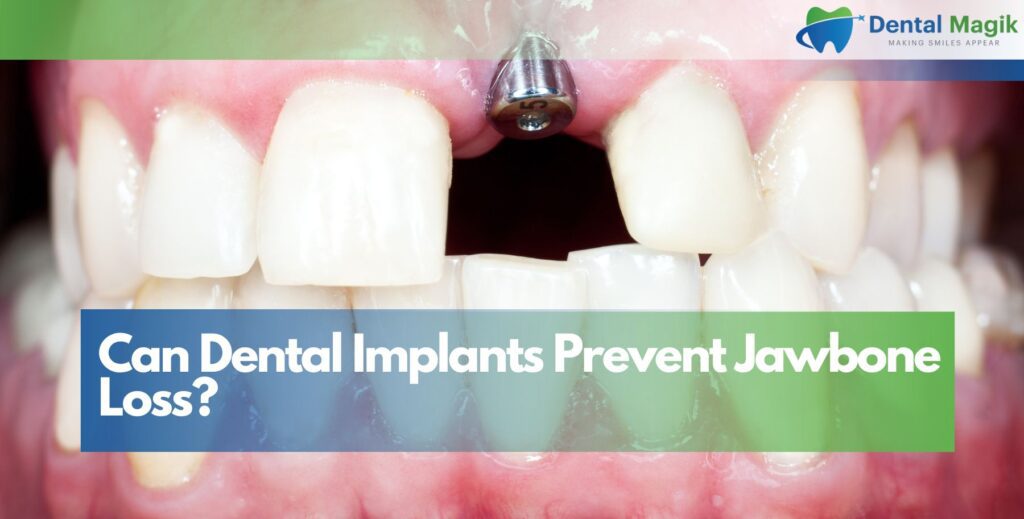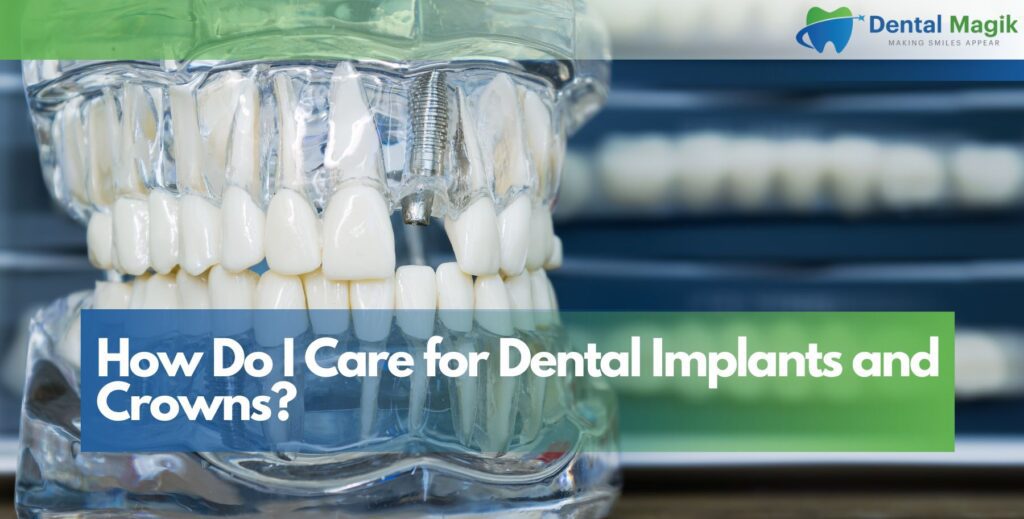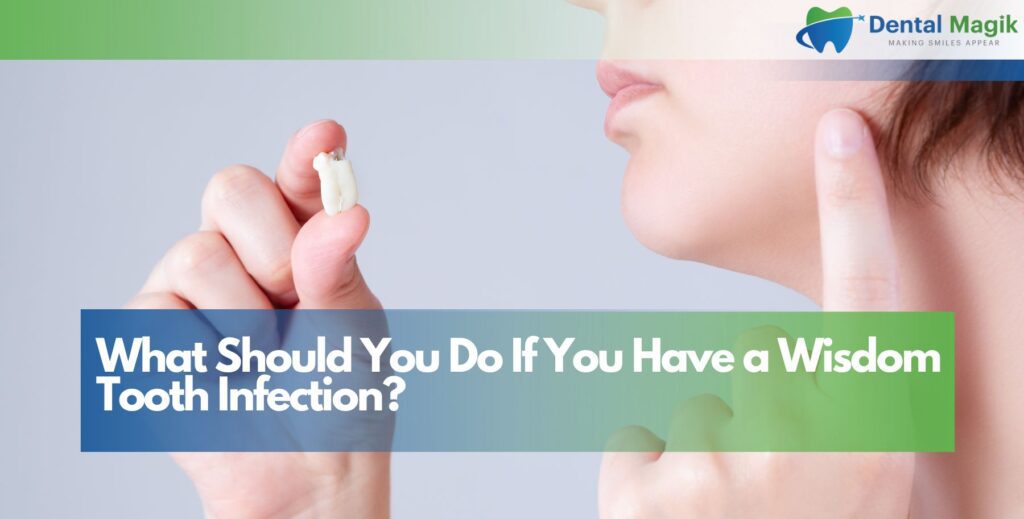Dental health plays a vital role in a child’s overall well-being and development. When dental issues arise, parents often wonder about the best course of action to ensure their child’s teeth remain strong and healthy. One common treatment recommended by pediatric dentists is the use of dental crowns. A dental crown is a cap placed over a damaged or decayed tooth to restore its shape, size, and strength. It protects the tooth from further damage and allows it to function normally. We will also discuss preventive measures and answer common questions about dental crowns for children.
What Is a Pediatric Dental Crown?
A pediatric dental crown is a tooth-shaped cap placed over a child’s tooth to restore its shape, size, strength, and appearance. These crowns are used to protect and strengthen teeth that are damaged or at risk of further decay. Pediatric crowns are typically made from stainless steel, zirconia, or composite materials. They provide a robust solution that allows children to maintain normal dental function and appearance.
When Is a Pediatric Dental Crown Necessary?
Children may require dental crowns for various reasons. Understanding these reasons can help parents make informed decisions about their child’s dental care. Pediatric dental crowns are essential in protecting the health and alignment of both primary and permanent teeth.
Severe Tooth Decay
Tooth decay is one of the most common dental issues among children. If left untreated, cavities can grow and compromise the tooth structure. In cases where the decay is extensive, a dental filling might not suffice. A crown covers the entire tooth, preventing further decay and preserving the tooth until it naturally falls out. Addressing severe decay early reduces the risk of infection and ensures the child can continue to eat and speak without discomfort.
Large Cavities
When cavities are too large to be repaired with a filling, a crown becomes necessary. This ensures that the tooth maintains its function and integrity, allowing the child to chew and speak properly. Large cavities can weaken the overall tooth structure, making crowns a better long-term solution than continuous fillings that may break down over time.
Fractured or Broken Teeth
Children are active and accidents can happen. A fall or blow to the mouth can lead to fractured or broken teeth. Crowns provide a durable solution to restore the shape and function of the affected tooth. By restoring broken teeth promptly, pediatric dentists help avoid pain, infections, and further dental issues that can arise from untreated fractures.
Weakened Teeth
Some teeth naturally have thin enamel or are weakened by medical conditions. Crowns help protect and strengthen these teeth, preventing further damage. Weakened teeth are at a higher risk of developing cavities and breaking, making crowns an effective way to reinforce the tooth and protect the underlying structure.
Post-Pulpotomy (Baby Root Canal)
When a child undergoes a pulpotomy, which is the removal of infected pulp tissue, a crown is often placed over the treated tooth to provide additional protection and longevity. This step prevents reinfection and keeps the treated tooth functional until it is naturally replaced by a permanent tooth.
Benefits of Pediatric Dental Crowns
Dental crowns offer numerous benefits that contribute to a child’s overall dental health. Here are some key advantages:
Long-Lasting Protection
Crowns provide long-term protection against further decay, ensuring the tooth remains intact until it naturally falls out. This extended protection is essential in maintaining the overall health of the surrounding teeth and gums.
Restores Functionality
A crown restores the functionality of a damaged tooth, allowing children to eat, speak, and smile confidently. This restoration plays a critical role in the child’s nutrition and social interactions.
Preserves Tooth Alignment
By preserving a primary tooth, crowns help maintain proper tooth alignment and prevent the shifting of adjacent teeth. This alignment ensures that permanent teeth erupt correctly, reducing the need for orthodontic treatments in the future.
Cost-Effective Solution
Crowns can be more cost-effective than repeatedly filling a tooth that continues to decay or break. By addressing the problem comprehensively, crowns reduce the need for multiple dental visits and treatments over time.
Types of Pediatric Dental Crowns
There are several types of dental crowns available for children. Each type has its benefits and suitability depending on the child’s needs.
Stainless Steel Crowns
Stainless steel crowns are durable, affordable, and commonly used for molars. They are highly effective and can withstand chewing forces. These crowns are easy to place and provide reliable protection for back teeth that endure heavy chewing.
Zirconia Crowns
Zirconia crowns are tooth-colored and offer excellent aesthetics. They are strong, durable, and biocompatible, making them a popular choice for visible front teeth. Zirconia crowns provide the strength of metal crowns with the added benefit of blending naturally with surrounding teeth.
Composite Strip Crowns
These crowns are made from composite resin and are customized to match the natural color of the teeth. They provide an aesthetic solution but may not be as durable as zirconia or stainless steel crowns. Composite crowns are commonly used for front teeth and areas where appearance is a primary concern.
The Pediatric Dental Crown Procedure
The process of placing a dental crown on a child’s tooth typically involves several steps:
Diagnosis and Treatment Planning
The dentist will assess the child’s dental health, take X-rays, and determine the extent of decay or damage. This thorough examination ensures that the correct treatment plan is in place.
Tooth Preparation
The decayed or damaged portion of the tooth is removed. The tooth is then reshaped to accommodate the crown. This step is crucial for ensuring a secure and comfortable fit.
Crown Placement
The dentist selects the appropriate crown type and size, then cements it onto the prepared tooth. The crown is adjusted to fit comfortably and ensure proper bite alignment.
Post-Treatment Care
The child may experience mild discomfort initially, but this subsides quickly. Regular dental hygiene and check-ups are essential to ensure the longevity of the crown. Parents are advised to monitor their child’s eating habits and avoid hard or sticky foods immediately after crown placement.
Dental Crowns in East Brunswick, NJ
Choosing Dental Crowns in East Brunswick, NJ means selecting high-quality dental care for your child. Pediatric dentists in East Brunswick specialize in providing crowns that restore and protect teeth, ensuring long-lasting results. Whether your child needs a crown due to decay, injury, or other dental conditions, East Brunswick offers experienced professionals equipped with the latest techniques and materials. This ensures that each dental crown is placed with precision and care, promoting the best outcomes for your child’s oral health.
Conclusion
Pediatric dental crowns are essential for preserving your child’s oral health, addressing dental issues before they escalate, and ensuring proper function and appearance. By opting for dental crowns, parents can protect their child’s teeth from further decay, fractures, and misalignment. These crowns contribute to maintaining the overall structure of the mouth and play a pivotal role in supporting long-term dental health. If your child requires Dental Crowns in East Brunswick, seek the expertise of a qualified Dentist in East Brunswick, NJ who can provide comprehensive care, ensuring your child’s smile remains healthy and bright for years to come.

